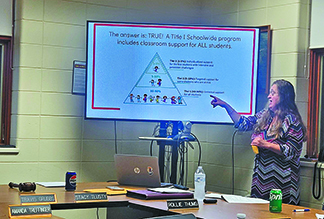Childcare proposal a good start, but needs more work
Access to affordable childcare is a choke point for economic growth, especially in rural communities. A new proposal from a group of Republican legislators is a step in the right direction, but does not go far enough in addressing the problem.
Small rural communities are ideal places to raise families. In these tightknit communities serious crimes are rare, quality workers remain in demand, home prices are comparatively low, school class sizes are small and teachers and staff care about each student.
Where many rural communities are lacking is quality, affordable child care.
With average childcare costs throughout the region outstripping a year’s tuition to a state university, it is no wonder that young people bypass rural communities or choose to have fewer children simply because they cannot afford the childcare expenses.
In many communities school districts have worked to offer alternatives through expanded 4-year-old kindergarten options. The challenge for established licensed daycare providers is that school programs put them at a competitive disadvantage since it is hard to compete with something that is provided as a government service. This is especially challenging for private child care centers as the older children are more independent and require fewer staff members, making them more profitable for the centers as a whole and helping offset some of the costs of infants and toddlers who require a much higher staff to child ratio.
The solution that Reps. Joy Goeben of Hobart and Karen Hurd of Fall Creek have proposed is to compel school districts to contract with licensed child care centers that meet educational requirements. The children in these 4K programs would count toward state aid funding formulas and the districts would then pass that aid to the private centers.
Currently state rules fund 4K at about 50% of the rate for other students. Where the proposal falls short is in not fully funding the 4K programs. Such a move would open the door to more partnerships between schools and childcare providers. In communities such as Rib Lake, where there are currently no licensed child care providers, it could serve as an incentive for the school to offer this service or enter into a partnership with a private entity to provide the needed service.
If Wisconsin is truly serious about wanting to help rural communities remain sustainable, any solution must include expanding the state funding available to schools for 4K and other childcare programs and incentivizing districts to partner with private providers. Public/ private partnerships have a long track record of success in Wisconsin offering financial and practical stability while benefitting from the innovation and ideas from the private sector.
Where the proposals make the most sense is in eliminating the potential of competition between taxpayer supported schools and private businesses and instead seek to make them partners in serving the needs of rural communities.




